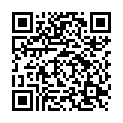|
|
|
| Module code: FT50 |
|
|
2V+1U+1P (4 hours per week) |
|
4 |
| Semester: 6 |
| Mandatory course: no |
Language of instruction:
German |
Assessment:
Written exam 120 Minuten
[updated 30.09.2020]
|
FT50 (P241-0298, P241-0304) Automotive Engineering, Bachelor, ASPO 01.10.2011
, semester 6, optional course
FT50 (P241-0298, P241-0304) Automotive Engineering, Bachelor, ASPO 01.10.2015
, semester 6, optional course, course inactive since 27.07.2017
FT50 (P241-0298, P241-0304) Automotive Engineering, Bachelor, ASPO 01.04.2016
, semester 6, optional course
FT50 (P241-0298, P241-0304) Automotive Engineering, Bachelor, ASPO 01.10.2019
, semester 6, optional course
|
60 class hours (= 45 clock hours) over a 15-week period.
The total student study time is 120 hours (equivalent to 4 ECTS credits).
There are therefore 75 hours available for class preparation and follow-up work and exam preparation.
|
Recommended prerequisites (modules):
None.
|
Recommended as prerequisite for:
|
Module coordinator:
Prof. Dr.-Ing. habil. Andreas Fricke |
Lecturer:
Prof. Dr.-Ing. habil. Andreas Fricke
[updated 11.05.2019]
|
Learning outcomes:
After successfully completing this course, students will have mastered the prinicples of systematically designing transmission systems and can classify and characterize different types of transmission systems. They will be able to describe and design movements of working bodies, dimension selected gear types according to given kinematic requirements and design them under kinetostatic aspects.
[updated 30.09.2020]
|
Module content:
Lecture:
1. Transmission systems
2. Kinematic and kinetostatic transmission system analysis
3. Gear trains
4. Synthesis of four-bar coupling gears
5. Cam gear
6. Couplings
7. Toothed belt drives
Lab course:
Exercises involving the analysis of gears on laboratory test benches
[updated 30.09.2020]
|
Teaching methods/Media:
Seminaristic lecture, exercises, lab course / lecture notes, laboratory test benches with real transmission assemblies
[updated 30.09.2020]
|
Recommended or required reading:
- Fricke, Günzel, Schäffer: Bewegungstechnik _ Konzipieren und Auslegen von mechanischen Getrieben. München: Carl Hanser Verlag 2015
- Schlecht, B.: Maschinenelemente 2. Getriebe-Verzahnungen-Lagerungen. München: Pearson Studium 2010
- Wittel, H.; Muhs, D.; Jannasch, D.; Voßiek, J.: Roloff/Matek - Maschinenelemente. 21., überarbeitete und erweiterte Auflage. Wiesbaden: Vieweg+Teuber Fachverlage 2013
[updated 30.09.2020]
|


